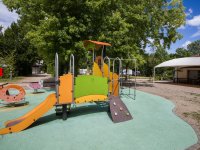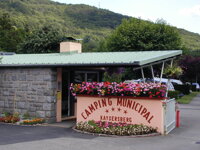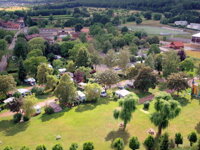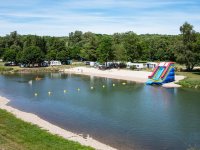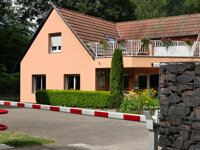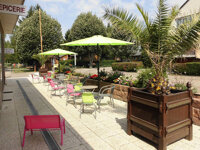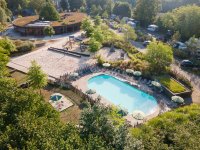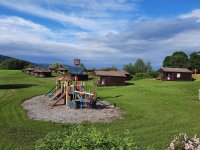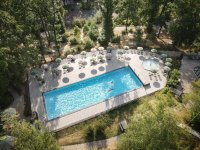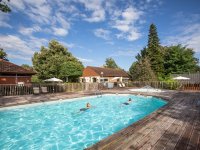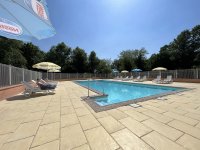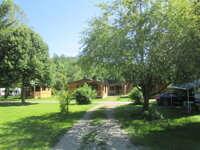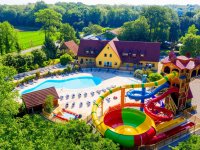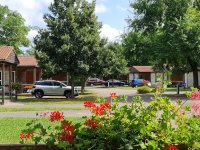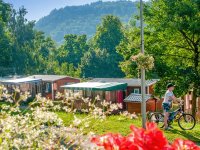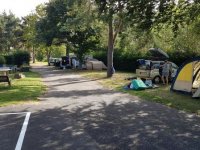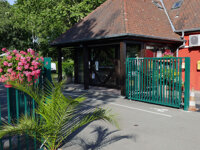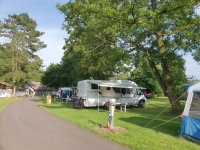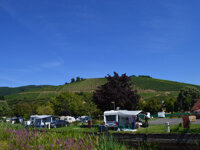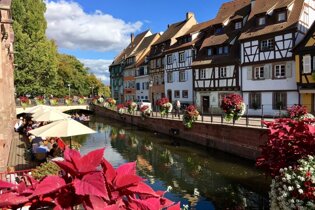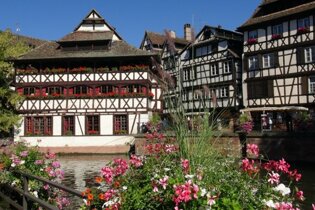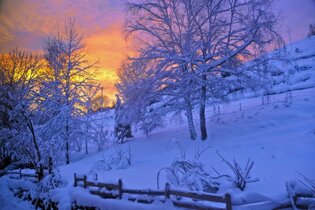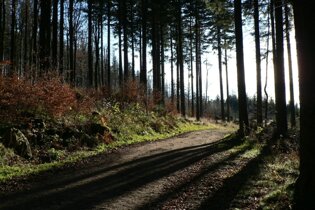Camping in Alsace
32 campsites in France, Alsace
Campsite Listing Google Map
The following consent is required:
Tracking & performance, Targeting & advertising.
Alsace
Lying between the Rhine and the Vosges mountains, to the north and east, Alsace shares a border with Germany, to the south with German-speaking Switzerland and to the west with Lorraine and Franche Comté. Not so far away from the UK and with plenty of charm, excellent campsites and unspoilt scenery, it’s a mystery why Alsace is not right at the top of the bucket list for many British campers and caravanners.

Alsace is a truly unique corner of eastern France and a quirky mixture of French and German culture and architecture. Situated between the river Rhine and the mighty Vosges mountains. It is largely regarded as the Germanic region of France, bordering Germany in the north and east and German-speaking Switzerland in the south. Indeed, a significant number of its inhabitants speak the Alsatian dialect, a form of German similar to that spoken in Switzerland. Having been under both German and French rule during the development of modern-day Europe, it shows the influence of both countries.
Alsace has two départements, both geographically similar, with Strasbourg the capital of the Lower Rhine (Bas Rhin), home of the European Parliament, and a vibrant city with an attractive medieval centre and an outlying industrial belt. Colmar is the capital of the Upper Rhine (Haut Rhin) with its beautifully preserved medieval houses; however, the largest city is Mulhouse, a major manufacturing centre with a wealth of museums and attractions.
As a camping holiday destination, it packs a big punch for a relatively small region with a colourful array of tempting gastronomy, amazing wines, rich history and plenty of cultural heritage. You'll see a charming landscape of rolling hills where the undulating slopes are carpeted in leafy vines and dark forests. The hills link picture-postcard villages that seem to leap from the pages of a Victorian picture book, with narrow streets lined with ancient timbered houses rising up above street level from the enticing little shops to the precariously balanced storks' nests on the rooftops.
Camping in and around Alsace
Despite not being at the top of the wishlist for many Brits, there are fantastic campsites throughout Alsace. The Lower Rhine region alone has over a hundred campsites. Whether you're towing a caravan or in a motorhome, Alsace is easily reached, accessible from the main northern France ports, so you could be setting up camp with no need for an overnight stop.
The natural beauty of Alsace provides incredible instant backdrops for most campsites, so it's not hard to find a beautiful setting. And the whole region is extraordinarily pretty, with its woodlands, meadows, quaint villages and relaxed sense of history. Whenever you stay there is plenty of year-round appeal: outside the summer months, late summer and autumn is a great time as the vineyards go about their business. The winter offers wonderful walking and hiking in the hills, skiing too, as well as the obvious appeal of Christmas markets and the undisputed charm of any number of villages decked out for the festive season. Spring sees the countryside erupt in a frenzy of growth and is perhaps Alsace at its prettiest.
Tent campers are well looked after with good-sized, grassy pitches, often in delightful areas of the campsite reserved for tents. This works well, with no danger of being jostled by a large motorhome or in the shadow of a touring caravan. Facilities tend to be excellent (though there are fewer of the large-scale campsites that you'll find on the coast) and you can generally order your morning baguettes and croissants from reception each evening.
Those fancying some glamping are also well catered for, with many campsites offering attractive accommodation like yurts, ready erected tents (safari tents, bell tents and so on), as well as the popular roulottes (a take on the traditional Romany caravan).
Places of interest

Strasbourg: Capital of Alsace and one of France's most stunning cities. It's steeped in European institutions, not least the European Parliament, the European Ombudsman, the Council of Europe, the Court of Human Rights and more. The Grand Ile in the ancient centre is officially recognised by UNESCO as a World Heritage Site and the magnificent Gothic cathedral is perhaps its architectural highlight.
Colmar: Crammed with timber-framed buildings, Colmar oozes charm, especially in the old quarter. Stroll along the little streets among the old houses and little squares and maybe pop into the Unterlinden Museum, a collection of artworks from medieval times up to today, set in a lovely 13th-century cloister.
Kayserberg: A Small town, birthplace of Albert Schweitzer; special Christmas market.
Mulhouse: Famous for the Musée National de l’Automobile and the Musée Français de Chemin de Fer.
Riquewihr: Almost untouched since the 18th century (whilst almost every other village was decimated by war) with 13/14th-century fortifications and medieval houses.
Castle country

This is a hilly region where in times past the obvious thing for a would-be ruler to do was build a castle on the top of a hill. Surrounding the castles are numerous legends, ancient forests and age-old traditions. The Alsace Castle Route is a great way to get a sense of the history of this often turbulent region.
Haut-Konigsbourg castle: One of the great castles of France, dating from the 12th century and key to protecting trade routes.
Hohlandsbourg castle: Constructed in the 13th century, this castle provides amazing views over the Alsace plains and the Vosges, even as far as the Alps on a clear day.
Ortenbourg castle: This castle, accessible only on foot, is well preserved and was one of Alsace's key defensive positions. With dense forest all around, the views from the tower are fabulous.
Château de Kintzheim: Built in the late 13th century, this dramatic castle features a sturdy tower and defensive walls. The bird of prey sanctuary is fascinating.
Landskron castle: On the Swiss border in the Jura, this 13th-century castle has sweeping views across the valley, and the crumbling remains of the ancient dungeon and the chapel are very atmospheric.

Cuisine of the region
Beckenoffe (Baeckeoffe): A hotpot of potatoes, lamb, beef, pork and onions, cooked in local wine.
Choucroute: Sauerkraut with peppercorns, boiled ham, pork, Strasbourg sausages and boiled potatoes.
Flammekuche: Bread dough topped with cream, onions and bacon.
Munster: A soft, strong tasting cheese with orange rind, believed to have been invented by the monks of the Benedictine Abbey.
Tarte à l’oignon Alsacienne: Onion and cream tart.
